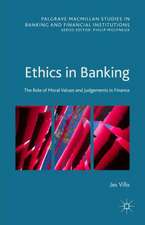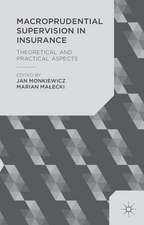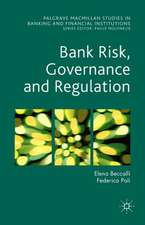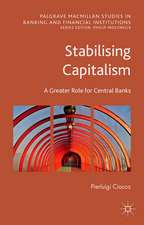Money and Trade Wars in Interwar Europe
Autor ALESSANDRO ROSELLIen Limba Engleză Hardback – 28 oct 2014
| Toate formatele și edițiile | Preț | Express |
|---|---|---|
| Paperback (1) | 385.47 lei 6-8 săpt. | |
| Palgrave Macmillan UK – 2014 | 385.47 lei 6-8 săpt. | |
| Hardback (1) | 387.75 lei 6-8 săpt. | |
| Palgrave Macmillan UK – 28 oct 2014 | 387.75 lei 6-8 săpt. |
Preț: 387.75 lei
Nou
Puncte Express: 582
Preț estimativ în valută:
74.20€ • 80.58$ • 62.33£
74.20€ • 80.58$ • 62.33£
Carte tipărită la comandă
Livrare economică 22 aprilie-06 mai
Preluare comenzi: 021 569.72.76
Specificații
ISBN-13: 9781137326997
ISBN-10: 1137326999
Pagini: 259
Ilustrații: XVI, 259 p.
Dimensiuni: 140 x 216 x 18 mm
Greutate: 0.41 kg
Ediția:2014
Editura: Palgrave Macmillan UK
Colecția Palgrave Macmillan
Locul publicării:London, United Kingdom
ISBN-10: 1137326999
Pagini: 259
Ilustrații: XVI, 259 p.
Dimensiuni: 140 x 216 x 18 mm
Greutate: 0.41 kg
Ediția:2014
Editura: Palgrave Macmillan UK
Colecția Palgrave Macmillan
Locul publicării:London, United Kingdom
Cuprins
PART I: THE GOLD STANDARD REINSTATED 1. War Reparations and Hyperinflation in Germany 2. The Reichsmark: Stabilization and Foreign Loans 3. Golden Fetters Revisited PART II: THE GOLD STANDARD COLLAPSE: NATIONALISM AND BILATERALISM IN INTERNATIONAL FINANCIAL RELATIONS 4. Towards nationalism 5. Bond Repatriation, Export Subsidies and Clearing Agreements 6. Germany and Italy's Relations with South Eastern Europe 7. The Italian-German Clearing PART III: WHAT EUROPE? 8. The Funk Plan 9. Money for the World of Tomorrow: Early Reactions to the Funk Plan
Recenzii
'Alessandro Roselli has unearthed intriguing documents in the Bank of Italy's archive revealing the developing Nazi German plan of the early WWII years for Europe's future economic and financial organization. The new Europe would be run by Germany and Italy. Showing clearly how the elements of the plan had their origins in the turmoil of the interwar years, he has produced a scholarly, fluently-written, and genuinely fascinating account and closes with thoughts on what eventually happened in Europe.'
- Forrest Capie, Professor Emeritus of Economic History, Cass Business School, City University, London, and author of The Bank of England, 1950s to 1979
- Forrest Capie, Professor Emeritus of Economic History, Cass Business School, City University, London, and author of The Bank of England, 1950s to 1979
Notă biografică
Alessandro Roselli is Visiting Fellow at Cass Business School, City University, London, and at the University of Buckingham, UK. He has spent most of his career at the central Bank of Italy and has been A.C. Jemolo fellow at Nuffield College, University of Oxford. He has written extensively on banking, finance and economic history. His most recent book is Financial Structures and Regulation: A Comparison of Crises in the UK, USA and Italy.










